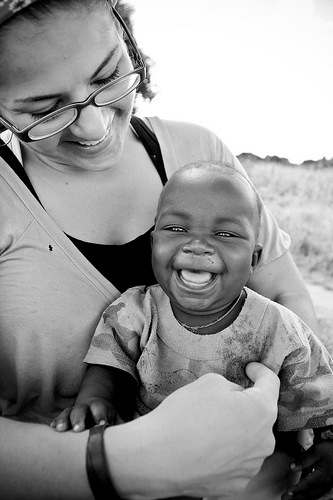How to evaluate your mission trip

 I've been sending people to the mission field for 25 years. This year we (Adventures) sent our 100,000th short-term missionary. Along the way, I've made just about every mistake you can make. And what's worse, I keep making them.
I've been sending people to the mission field for 25 years. This year we (Adventures) sent our 100,000th short-term missionary. Along the way, I've made just about every mistake you can make. And what's worse, I keep making them.
The key is to minimize the "fail rate." Yes, most of those who go on an Adventures trip give us rave reviews. But I tend to fixate on the few that gave us poor reviews and ask, "Why did that happen and how can we do better?"
For example, we failed to meet our standards with one team that just returned home. So our leadership team decided to call or email everyone on the team to find out what went wrong and what we could have done better. I love that kind of commitment to excellence. It's hard work, but what we learn is so helpful and the message we send by making those calls is important.
Without accountability, entropy can take hold. We all need an evaluation cycle no matter what we do. You design the work, you do the work, and then you evaluate and make adjustments. That's the foundation of an improvement process.
Here are five lessons I've learned along the way to ensure excellence:
1. Work from design. Establish the goals and picture of what you want to accomplish. Define what success looks like. In a short-term mission, we look for the fruit of changed lives in participants and enhanced long-term ministry on the field.
2. Establish standards of excellence. Years ago, I helped organize an association of mission agencies and churches that agreed to seven standards of excellence in short-term missions. Without some kind of agreement about "what is good," anything goes. Standards should be measurable and verifiable.
3. Define an assessment process. We try to get all stakeholders in a given project to evaluate how it went and if it met its goals. Partners on the field, participants, and staff all have a stake in the project and need to have a voice in evaluating it. Anonimity may ensure the integrity of data. Evaluation forms and a means of transferring their data to decision-makers are essential. Interviews can give needed context.
4. Assimilate the data. Decision-makers should be able to review a summary of all evaluations. Summary information should be framed in a way that is actionable. We receive thousands of evaluations every summer and I am only brought into the loop when we fail to meet our standards.
5. Make needed changes. By talking to the mission team and listening to their recommendations, we learned that we needed to change some of the staff who have been setting up our projects. We were no longer using the forms that guaranteed excellence and our training needed to be reinforced. Yesterday I asked our managers to make these changes.
Short-term missions can be difficult to evaluate. After they are done, staff are tired and participants return to their regular lives. If you don't get the data right away, you're probably not going to get it after the team returns home. Most of us don't love accountability anyway, so there are a lot of reasons for an evaluation process to break down.
But a good evaluation process helps ensure that your ministry has integrity. It's worth it.

This has been my mantra and why Market Research has been the perfect profession for me.
Love this! It’s exactly what I needed to read this am as I start the process of planning and leading more trips!
great stuff seth as always. thanks for posting – hope your summer has been awesome!